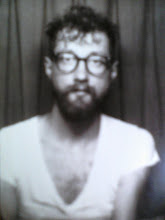
I wasn't sure if Maurice Sendak were still with us. He co-produced Spike Jonzes' film adaptation of his book Where the Wild Things Are.
I only realized how I felt about it about three quarters through. I felt very ill at ease and puzzled and at odds with the timing. Just like childhood in other words. Kind of sick in my stomach but mesmerized and frustrated. That's how it was perfect. No gimmicky crap or wooden child actor lines. Just vessels trying to keep their contents from making them fucking nauseated. So utterly whittled down. No hokey magic or filler.
Some Jungian sort of play. That difficult force of creation more demanding in some than others running amuck, essential but so needy and difficult and high and low. So loyal, holding you to the highest degree of expectation and esteem. That thing that forces you to do it better, do it again, obsess and seek. That thing that blessedly wrings out all the hollowness and is simultaneously a curse to control.
I had been waiting for it. I thought I would be able to escape into it. Sweet and easy to deal with. Not really. I'm thankful for that. Maybe I'm just really vulnerable right now. And this and that and hopandskip an d throw up a little and doncha wanna feel it in yer bones? Someone's always falling out of the goddamn boat.
It's stealing season. Bring me fruits on a tray, on celluloid, on rotting pages or howling gibberish across Liberty Avenue. Just STOMP OFF THE FUCKING ICE IF YOU'RE COMING IN.



